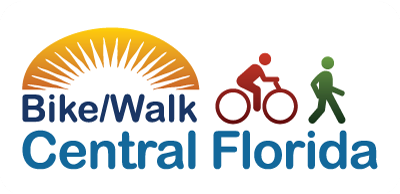 When Orlando leaders recently unveiled their long-term vision for downtown’s future, it was of a city where cyclists and walkers feel as much at home as people who get around on four wheels.
When Orlando leaders recently unveiled their long-term vision for downtown’s future, it was of a city where cyclists and walkers feel as much at home as people who get around on four wheels.
While bigger plans, like a two-way Orange Avenue, are likely a long way off, smaller steps toward encouraging biking in the city have taken shape in the past month.
The latest news came last week, when officials announced that new bike-repair stations are now in place across the city. And on Monday, the City Council is expected to approve funding for an overpass to help pedestrians and bicyclists cross a treacherous stretch of Colonial Drive.
The repair stations, metal pillars featuring tools and a tire pump, are meant to allow bikers to fix a flat, adjust a seat or do other routine maintenance while on the go.
The city so far has installed four repair stations across the city:
• At City Commons Parking Garage, 460 Boone Ave., near City Hall.
• At the east end of Lake Underhill Path, near Park of the Americas.
• At the Cady Way Trailhead, on the west end of the trail near Orlando Fashion Square mall.
• And on the Orlando Urban Trail at Ferris Avenue.
Changes are also coming to the Urban Trail itself, which currently runs through the Mills 50 and Ivanhoe Village districts, before stalling out at Colonial Drive.
Project DTO, a task force that helped devise Orlando’s new long-term plan for the downtown area, identified expanding the trail as a potential “game-changer.” Long-term, the trail would link with the existing Gertrude’s Walk corridor, and eventually run through the core of downtown.
On Monday, commissioners are expected to take a step toward that goal by approving an agreement with the Florida Department of Transportation allowing the city to build a pedestrian bridge over Colonial Drive, just east of Interstate 4.
The arrangement includes about $9 million in federal funding to design and construct the bridge.
Amanda Day, who runs Bike/Walk Central Florida, said that the bike-friendly improvements are part of a larger, fairly recent trend away from the cars-first mentality.
“I think there’s just a strong impetus on safety and also on heath and public transportation,” Day said.
There’s still a long way to go, according to Day: Orlando has a bad reputation as a metro area consistently ranking among the most dangerous in the nation for pedestrians.
Perhaps the slowest change in making a region truly bike-friendly, Day said, is to “normalize” biking and walking so that it becomes habit for drivers and pedestrians to accommodate each other.
“That’s long term,” she said. “You’re looking 15, 20, 30 years out, there.”
Bike racks have also been showing up across Orlando for Juice Bike Share, formerly known as Orlando Bike Share, which recently took on a new name and expanded from four to more than a dozen stations.
The bicyclist lifestyle “is growing here, and it’s definitely got a good start,” says Sarah Peerani.
Peerani recently founded Orlando Bike Tours, which launched in February. Each first and third Saturday of the month, she leads a guided bicycling tour aimed at highlighting different aspects of the city.
The theme of this weekend’s tour was Instagram the City, with a focus on “Orlando’s most photographed locations.”
Seats, ranging from about $15 to $30, can be reserved in advance on her website, OrlandoBikeTours.org. Peerani says she’s done four tours so far, and each — they max out at 40 participants — has sold out or come close.
“What’s nice is that it’s not always just people that bike as an enthusiast,” said Peerani, who said one client on her last tour hadn’t ridden a bike in years. “It’s not just hard-core bikers. it’s really just open and available for everyone.”
Peerani said improvements are still needed to the city’s streets to make cycling safer, including more bike lanes. She said she also hopes to use the bike tours to teach would-be bikers how to stay safe on the roads.
According to Day, education is a key element of the bike-friendly movement.
“The more people that are riding bikes, the more that education will be needed of the fact that they have to follow the same rules that cars have to follow,” Day said.
jeweiner@tribune.com or 407-420-5171
Copyright © 2015, Orlando Sentinel

